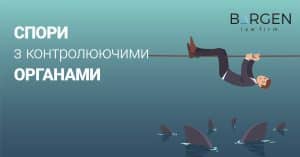You can also read the article in Ukrainian

More than three years have passed since the adoption of Law № 2042. This Law regulates the procedure for monitoring compliance with legislation on food, feed, animal by-products, animal health and welfare, ie determines the procedure for inspections by the State Food and Consumer Services of food-related businesses.
During the period of validity of the Law, judicial practice in disputes with the State Food and Consumer Service began to take shape: courts do not always make decisions in favor of business, however, positive cases are also lacking. What decisions are made by the courts - we'll talk later.
Violation of hygienic requirements
Article 65 of the already mentioned Law defines the list of penalties, the imposition of which often becomes the basis for litigation. For violation of the hygienic requirements to the production and / or circulation of food or feed, if it poses a threat to life and / or health of man or animal, a fine of 47 thousand UAH.
However, even in the presence of violations, the supervisory authority must prove that they do pose a threat. Next, we propose to analyze two lawsuits.
Improper waste disposal
The Dnipropetrovsk District Administrative Court, by a decision of January 10, 2019, overturned the decision of the State Food and Consumer Service to impose a fine.
The appellate court upheld the decision.
The essence of the violation of the case was that the supermarket did not provide waste in closed containers.
At the same time, the court noted that the inspection report does not contain information that the container stores food waste, as required by paragraph 2 of Part 1 of Article. 46 of the Law № 771/97. It does not follow from the provided inspection video what exactly the waste is in the specified container. Therefore, the court concluded that there were no violations of hygienic requirements.
In addition, the court stated that neither the inspection report nor the report contained information that the violations identified by the defendant posed a threat to the life and / or health of a human or animal and what the threat was.
During the appeal of the decisions of the State Food and Consumer Service, made on the basis of paragraph 1 part 1 of Art. 65 of the Law № 2042, it should be borne in mind that the controlling body must prove what exactly the threat of violation of hygienic requirements poses.
Sampling
An important point to pay attention to when appealing fines is whether the inspectors followed the sampling procedure and laboratory tests.
According to the results of laboratory tests of food products of the enterprise, a discrepancy in the microbiological indicator was established. The State Food and Consumer Service imposed a fine, and the Odessa District Administrative Court overturned the fine, stating that the samples taken were perishable products and that the time and method of delivery to the laboratory did not meet the norm.
In addition, the supervisory authority did not meet the requirements of the legislation regarding the selection of samples in two legally and analytically identical samples, which deprives the plaintiff of the opportunity to conduct an arbitration laboratory test.
Leased - you are not responsible
Penalties for violating food laws are often imposed on homeowners. Courts have repeatedly pointed out that only a person carrying out an activity (market operator) can be held liable.
Please note that in case of inspection, the company needs to have a lease agreement.
The Volyn District Administrative Court overturned the decision of the State Food and Consumer Services by a decision of December 6, 2019, in which it noted that in accordance with the lease agreements, the company leased the building where the inspection was conducted to individuals and entrepreneurs.
That is, the enterprise does not carry out the production, sale or storage of any food and feed, is not a market operator and facilities that carry out activities related to the production and / or storage of food of animal origin, and therefore can not bear the responsibility provided by law № 2042
Confirmation of refusal of admission to inspection
Paragraph 17 of Part 1 of Art. 65 of the Law № 2042 stipulates that the refusal to admit an official of the State Food and Consumer Service to the inspection leads to a fine of 47 thousand UAH, however, the State Food and Consumer Service must prove in court the fact of refusal of admission.
The Vinnytsia District Administrative Court overturned the fine of the State Food and Consumer Service by a decision of January 10, 2020, in which it noted that the head of the enterprise, who was the only employee, was on a business trip and reported the service officials by phone.
Therefore, the court concluded that the video recording materials, to which the defendant refers as proof that the plaintiff had refused admission, did not confirm such a circumstance.
Failure to notify the case is grounds for cancellation of the fine
According to Art. 66 of the Law, the time and place of consideration of the case shall be notified to the person against whom the protocol has been drawn up, not later than five working days before the day of consideration.
The Dnipropetrovsk District Administrative Court overturned the fine of the State Food and Consumer Service by a decision of August 19, 2019, as the entrepreneur was not properly notified of the date of consideration of the case on imposition of the fine.
The court pointed out that the fact of returning the envelope to the defendant could not unequivocally indicate the intentional non-receipt of the postal item by the plaintiff, as information about the plaintiff's information about the correspondence in the post office and evasion of its receipt by the court.
Ukrposhta does not see any reasons for not delivering the shipment during delivery from the case materials and information.
At the date of adoption of the impugned decision, the defendant did not have information about the plaintiff's awareness of the date of the case, therefore, should not have started the case.
In view of the above, the court considers violated the rights of the business entity to decide on the imposition of a fine without proper notice of the case, which did not provide the person with the opportunity to participate in the case, object, provide evidence, defend.
The presence of violations is not a reason to stop general production
Law № 2042 allows the inspector to make a decision on temporary suspension of production and / or circulation of food and / or feed within 10 working days with subsequent appeal to the court on the obligation of the market operator to stop production. The inspector may make such a decision if the activities of the establishment pose a threat to human and / or animal life and / or health.
St. 66 of the Law stipulates that the decision on temporary cessation of production and / or circulation of food and / or feed should restrict the relevant economic activity only to the extent necessary and sufficient to eliminate the threat to life and / or health of man and / or animal, and must determine which specific type of activity and with the use of which capacity (its part) is subject to temporary cessation.
However, in practice, controllers often stop production altogether.
The Odessa District Administrative Court overturned the decision to stop the proceedings, noting that the right to suspend the proceedings valid in the part concerning the detected violation and which is sufficient to eliminate the threat and should determine which specific type of activity and with the use of which capacity (its part) is subject to temporary cessation.
In this case, the State Food and Consumer Service stopped the general production, and not only the part where violations were found.
Cassation will not help
There are many cases of entrepreneurs' hopes for a court of cassation, which will be able to correct the mistakes of previous instances, properly investigate the circumstances of the case and take the side of the company.
However, there is a small problem with appealing the fines of the State Food and Consumer Service - the Supreme Court does not consider such cases, but simply refuses to open cassation proceedings, as these cases are insignificant due to small amounts of fines.
The court may open proceedings only in exceptional circumstances if, for example, the cassation appeal concerns a question of law that is fundamental to the formation of a uniform law enforcement practice, or the case is of significant public interest or is of exceptional importance to the party filing the case. cassation appeal.
When appealing against service fines, one should rely only on first instance and appeal.
Conclusions
There are two main rules to notewhich should be followed by enterprises, in order not to pay illegal fines.
Prepare for the test
Check for violations on your own or with the involvement of specialists, which may be grounds for a fine.
Prepare staff so that everyone knows how to meet the inspector and what to say in case of awkward questions.
Take an active part in the inspection
Provide substantiated objections to each violation found by the inspector.
Participate in the case of the imposition of a fine and provide all possible documents at this stage.
If you follow these rules, the chances of appealing the fine in court will increase significantly.




 (Number of ratings: 8 average: 5.00 of 5)
(Number of ratings: 8 average: 5.00 of 5)




